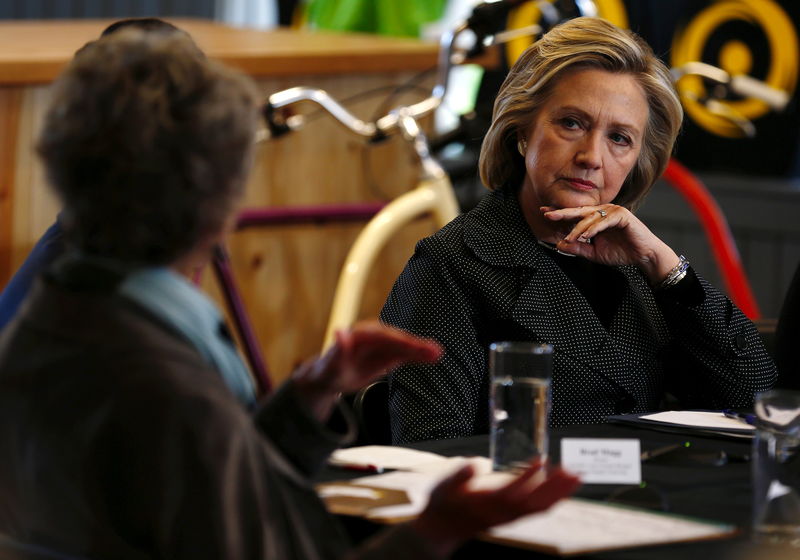By Mark Hosenball
WASHINGTON (Reuters) - A federal judge on Tuesday ordered the U.S. State Department to produce a plan to release batches of Hillary Clinton's emails from her time there, raising the prospect of months of drip-by-drip disclosures that could plague her presidential campaign.
U.S. District Judge Rudolph Contreras ordered the State Department to prepare a timetable by next week for the rolling release of the 55,000 pages of emails sent and received by Clinton, according to a court document.
It was a rebuke to the State Department, which had said on Monday it might need until January 2016 to produce the emails.
Republicans want the emails to be made public soon to cast more light on Clinton's term as secretary of state from 2009 to 2013, a time when the United States struggled to reset relations with Russia and develop a strategy for Syria's civil war.
The judge also told the State Department to present a schedule in the coming days for releasing 300 Clinton emails related to U.S. operations in Benghazi, Libya where four Americans, including the U.S. ambassador, were killed in a 2012 attack.
A department spokesman said the agency would comply with the judge's order.
While Clinton's critics are particularly interested in Benghazi emails, several congressional probes have found no "smoking gun" linking her to any failure to protect the Americans who were killed.
Clinton, the front-runner for the nomination to represent the Democratic Party in the November 2016 presidential election, called for the State Department to release the emails as soon as possible.
"Anything that they might do to expedite that process I
heartily support," the former first lady and U.S. senator told reporters at a campaign event in Cedar Falls, Iowa. "I want them out as soon as they can get out."
Clinton has come under criticism for using a personal email account, hosted on a private server in her New York state home, instead of a government one for messages she sent and received as secretary of state.
Making the emails public in batches, as requested by the judge, could give Clinton's opponents on the campaign trail multiple chances to attack her.
"I would call it a rolling headache because she's going to have to respond to these each time they come out," said Democratic strategist Bud Jackson.
Clinton has said she used a private email account because it was more convenient and points out that she violated no rules.
She has deleted from her private account some 30,000 emails which she terms as personal, and handed over what she says were the work-related ones to the State Department.
Allison Moore, a Republican National Committee spokeswoman, said, "Of course, Hillary Clinton wants her hand-selected e-mails made public because her team carefully chose the ones she wants released before deleting the rest.

"If Clinton wanted all of her e-mails to be public, she wouldn't have created her own server in the first place," Moore said in a statement.